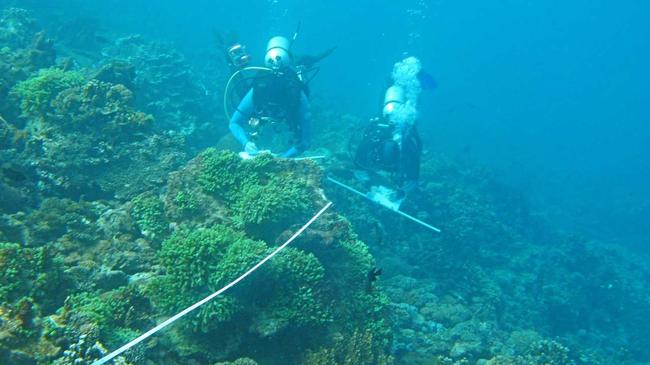SCU researcher's coral sex breakthrough
A RESEARCH breakthrough could mean the restoration and repair of reefs not only on the Coffs Coast, but around the world and it relies on hot, steamy, coral sex

Coffs Harbour
Don't miss out on the headlines from Coffs Harbour. Followed categories will be added to My News.
A RESEARCH breakthrough could mean the restoration and repair of reefs around the world, including those along the Coffs Coast and it all relies on hot, steamy, coral sex.
The project, led by Southern Cross University's Professor Peter Harrison has been working in the Philippines, in an area of reef highly degraded by blast fishing.
Professor Harrison said the results of the research partnership backed by the Australian Centre for International Agricultural Research (ACIAR) have been incredible.
"Our research shows that some reefs can be repaired,” Prof. Harrison said.
Prof. Harrison's team grows millions of coral larvae in tanks, and then delivers them onto the reefs in large underwater mesh tents.
"This research is globally significant. It's important for the reef areas we're working on in the Philippines, but also important to the future of other damaged coral reefs including the Great Barrier Reef,” he said.
"What we have proven is that microscopic coral larvae can settle and grow as colonies to the size of dinner plates within three years, and be able to sexually reproduce at this early age.
"This is the first study anywhere in the world that has successfully re-established a breeding coral population from coral larvae settling directly on the reef, and proves that we can start to restore damaged and degraded reefs.”


